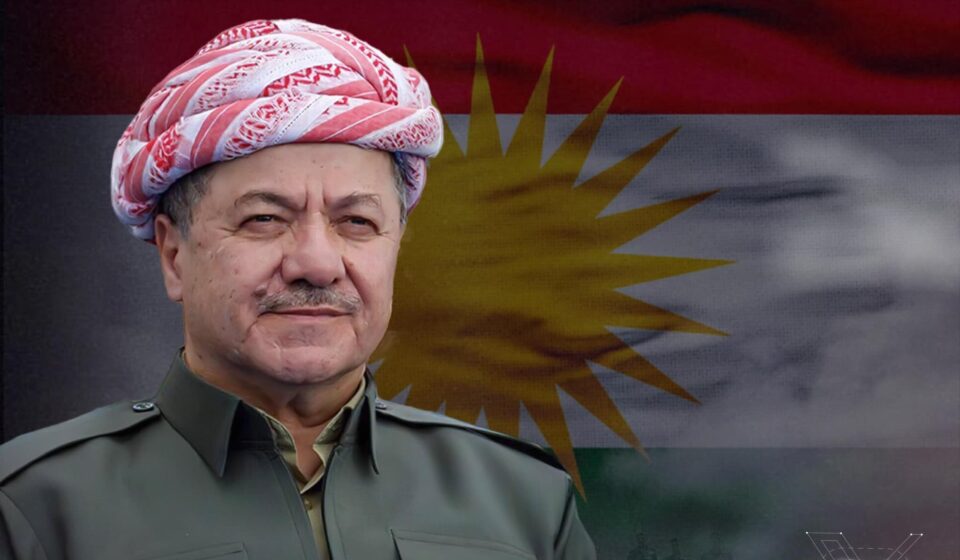Sema
Since the early days of the Kurdish liberation movement, the Barzani Headquarters has served as a vital center for national and international dialogue.
By: Amina Zikri
The recent visit of Mazloum Abdi, commander of the Syrian Democratic Forces (SDF), followed by the Imralı delegation’s arrival at the Barzani Headquarters to deliver a message from Abdullah Ocalan to President Masoud Barzani, signifies a significant political move. It underscores President Barzani’s pivotal role as a central figure in shaping the region’s stability and Kurdish affairs. Historically, Barzani has been both a leader and a mediator, with his first and last resort always being peace and reconciliation.
The visits of these two delegations come at a critical time, addressing two major concerns in both North Eastern Syria (Rojava) and South Eastern Turkey (Bakur). The first pertains to the future of Kurds in Syria following the potential collapse of the Assad regime. The second revolves around the peace process in Turkey’s Kurdish region. The Kurdish issue remains at a crossroads, constantly facing both existential threats and opportunities for deep-rooted change.
Kurds, regardless of their geographic location, require solidarity and political participation to ensure their interests are represented. Since the early days of the Kurdish liberation movement, the Barzani Headquarters has served as a vital center for national and international dialogue. It has been a focal point for discussions on Kurdish self-determination, peace, and relations with other ethnic and political groups in the region. This historical significance solidifies the headquarters as a critical player in shaping Kurdish affairs.
Over the past decade, President Barzani has played a key role in peace efforts in Bakur. His leadership facilitated critical agreements such as the Duhok and Erbil accords between Kurdish factions in Rojava. Without Barzani’s mediation, the Kurdish question in Turkey and Syria would have taken a different trajectory. His steadfast commitment to diplomacy has ensured that the Kurdish struggle remains on a political rather than a military path.
Despite facing numerous challenges, President Barzani has never abandoned his mediating role in peace efforts. His nationalist vision and advocacy for democratic solutions have positioned him as a major figure in regional politics. His influence extends beyond Kurdistan, as he is widely recognized as a unifying leader capable of fostering stability across the Middle East.
In Syria, Barzani has consistently worked to unify Kurdish political factions and encourage a collective Kurdish stance in negotiations with Damascus. His efforts have always been aimed at securing Kurdish rights within a stable Syria. Should Kurdish unity be achieved, it would not only benefit the Kurds but also contribute to Syria’s overall stability. Regional states have acknowledged Barzani’s influential role, recognizing his ability to mediate and promote peace, particularly in countries with significant Kurdish populations.
When Abdullah Ocalan personally requests that his message be conveyed to President Barzani, it reaffirms Barzani’s leadership in the Kurdish cause. It is an acknowledgment that Barzani is the key guardian of Kurdish interests. Whenever an issue arises concerning Kurdish rights, Barzani prioritizes national interests over past rivalries, discarding political disputes to focus on broader goals—peace, stability, and unity.
The Kurdistan Region remains a beacon of hope for resolving ethnic conflicts, particularly in fostering Kurdish relations with neighboring nations. It stands as a model for peaceful coexistence and constructive diplomacy, ensuring that the Kurdish question is addressed through dialogue rather than violence.
The opinions expressed in this article are those of the author and do not necessarily reflect the views of Kurdistan24.

